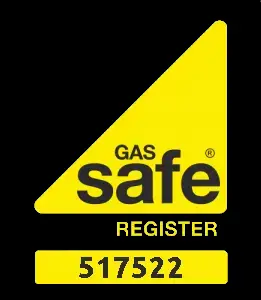Common LSAs Scams and Issues
Google Local Service Ads (LSAs) were introduced to help local businesses connect with potential customers in their area. However, like many online advertising platforms, they have become a target for scams.
Fake Google Listings – Step 1
Fake Business Profiles: Scammers create fake business profiles that appear legitimate on Google LSAs. They may use stolen or fake credentials to appear as certified professionals, including plumbers, electricians, and locksmiths.
Phantom Services: These fake listings advertise services that do not exist, taking advantage of users who need urgent assistance.
Bait-and-Switch Tactics
Low Initial Quotes: Scammers often provide unrealistically low quotes to attract customers. Once hired, they inflate the prices by claiming additional, often unnecessary, services are required.
Hidden Fees: After completing the work, the scammers add hidden fees that were not disclosed initially, forcing customers to pay more than expected.
Substandard or Incomplete Work
Unqualified Technicians: Scammers may send unqualified or underqualified technicians to complete the job, resulting in substandard or incomplete work that could require more expensive repairs later.
No Accountability: Because these scammers are not legitimate businesses, there’s no recourse for customers who receive poor service or incomplete work.
Phishing and Data Theft
Personal Information Theft: Some scammers use LSAs to collect personal information from unsuspecting customers under the guise of providing a quote or scheduling service. This information can then be used for identity theft or sold on the dark web.
Payment Fraud: Customers may be asked to provide credit card information upfront, which scammers then use to make unauthorized purchases.
How Fake Reviews Work
Mass Creation of Positive Reviews: Scammers generate large volumes of positive reviews in a short period. These reviews are often generic, overly enthusiastic, and lack specific details about the services provided.
Bots and Fake Accounts: To create these reviews, scammers use bots or fake accounts. These accounts may have no other activity or history, indicating they were created solely for this purpose.
Review Manipulation Services: Some scammers use paid services that specialize in creating and posting fake reviews, making the fraudulent profiles appear legitimate and well-reviewed.
The Dangers of Falling for Fake Reviews
Substandard Workmanship: Businesses that rely on fake reviews often provide subpar services. Unqualified or unlicensed technicians may perform the work, leading to poor results and potential safety hazards.
Financial and Safety Risks: Engaging with fraudulent companies can result in financial loss and, more importantly, significant risks to personal safety, especially if the work involves critical systems like plumbing, electrical, or gas services.
Signs of Scams
Too Good to Be True Offers: Be cautious of offers that are significantly lower than others. Scammers use low prices to lure customers.
Lack of Proper Credentials: Always verify the credentials and certifications of the service provider. Legitimate businesses will have no issue providing this information.
Poor Online Presence: Scammers often have minimal or fake online reviews. Check multiple sources for reviews and ratings of the service provider.
High-Pressure Tactics: Be wary of technicians who pressure you into making immediate decisions or payments.
Request for Upfront Payment: Legitimate businesses typically do not ask for full payment upfront. Be cautious if a service provider insists on it.
Protecting Yourself
Research and Verify: Use Google’s verification features to ensure the business is legitimate. Check the Google My Business profile and read reviews on multiple platforms.
Get Multiple Quotes: Compare quotes from different service providers to understand the average cost and identify unusually low or high estimates.
Check Credentials: Verify that the service provider is licensed, insured, and bonded. For certain services, such as plumbing or electrical work, ensure they are registered with the relevant professional bodies.
Payment Methods: Use secure payment methods that offer fraud protection. Avoid paying in cash or via direct bank transfers.
Read the Fine Print: Understand the terms and conditions of the service agreement, including any potential additional costs.
Reporting Scams
If you encounter a scam on Google Local Service Ads, report it to Google and local authorities. Google has measures in place to take action against fraudulent listings, but they rely on user reports to identify and remove them.
In conclusion, while Google Local Service Ads can be a valuable tool for finding local service providers, it is essential to remain vigilant and conduct thorough research to avoid falling victim to scams. By being aware of common scam tactics and taking steps to verify the legitimacy of service providers, you can protect yourself and ensure you receive quality service.


